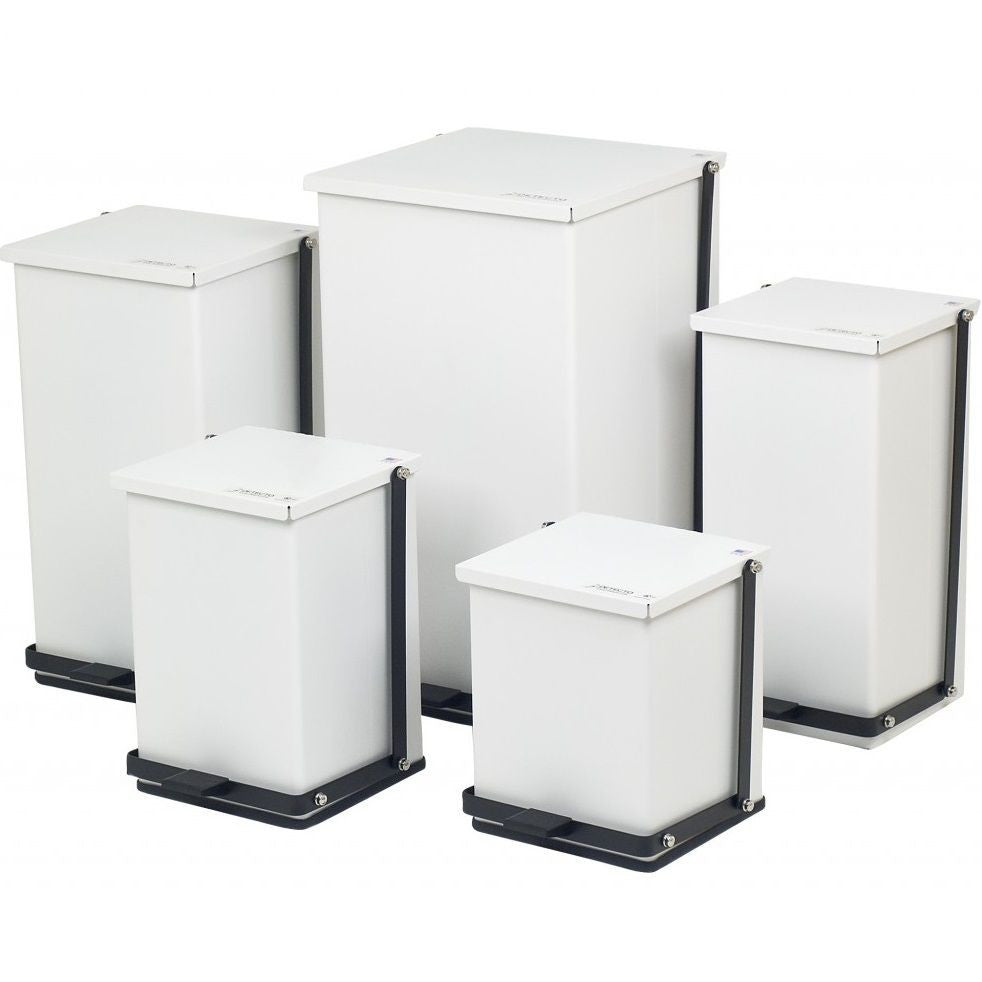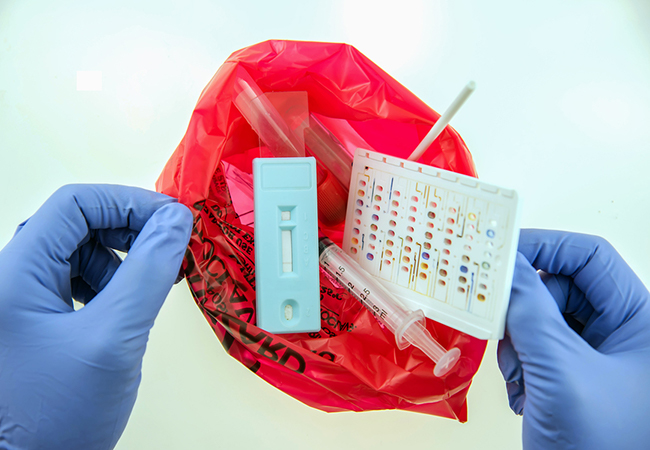Proactive Wellness Solutions: Picking the Best Medical Waste Removal Near You
Proactive Wellness Solutions: Picking the Best Medical Waste Removal Near You
Blog Article
Keep Ahead of Regulations: Expert Recommendations on Medical Garbage Disposal
In a world where the healthcare industry is frequently advancing, it is imperative for clinical facilities to stay in advance of guidelines when it comes to the appropriate disposal of medical waste. From understanding the various classifications of medical waste to applying the appropriate collection and partition methods, this conversation will provide actionable tips and beneficial insights to aid centers stay in advance of regulations in the ever-changing landscape of clinical waste disposal.
Comprehending Clinical Waste Categories
Comprehending medical waste groups is necessary for proper disposal and monitoring in health care facilities. Medical waste describes any type of waste produced by healthcare activities that might position a hazard to public health and wellness or the setting. It is important to classify medical waste precisely to guarantee its risk-free handling, transportation, disposal, and therapy.
There are a number of groups of medical waste that health care centers need to be knowledgeable about. One of the most usual categories include infectious waste, pathological waste, sharps waste, pharmaceutical waste, and chemical waste. Each category has details standards and policies for its correct monitoring and disposal.
Pathological waste refers to human cells, organs, or body parts that require unique handling and disposal. Pharmaceutical waste makes up ended, unused, or contaminated drugs that need careful handling and disposal.
Remaining Up-To-Date With Regulatory Adjustments
Remaining present with regulative modifications is critical for medical care centers to make certain conformity and appropriate administration of medical waste disposal. medical waste removal. With regulations constantly advancing, it is crucial for medical care centers to stay up-to-date to stay clear of charges, fines, and potential injury to the setting and public wellness
To stay in advance of governing modifications, healthcare centers ought to establish a system for surveillance and tracking updates. This can be done by subscribing to governing newsletters, participating in workshops and conferences, and proactively taking part in market organizations. Additionally, centers ought to mark a personnel member or group in charge of remaining notified and sharing info to relevant stakeholders.
Routine interaction with regulative firms is likewise vital. Health care centers ought to develop relationships with regional, state, and government agencies to guarantee they understand any type of adjustments in policies that might impact their waste administration techniques. This can be done through normal meetings, engagement in public remark durations, and proactive interaction with governing agencies.
Additionally, healthcare centers ought to take into consideration partnering with waste administration companies that focus on medical garbage disposal (medical waste disposal services with WasteX). These firms are frequently skilled in the current policies and can supply advice and assistance to ensure compliance
Carrying Out Correct Collection and Segregation Methods
To efficiently handle clinical garbage disposal, medical care centers should establish appropriate collection and segregation techniques according to governing standards. Applying these approaches makes certain the safe handling and disposal of potentially dangerous materials, safeguards the environment, and reduces the risk of injuries and infections to healthcare employees and the public.
Appropriate collection and segregation techniques entail using assigned containers and identifying systems. Healthcare facilities should provide plainly classified containers for various types of medical waste, such as sharps, infectious waste, pharmaceutical waste, and non-hazardous waste. These containers need to be color-coded and plainly significant to avoid confusion and advertise simple identification.
Additionally, healthcare centers must train their staff on the proper procedures for gathering and segregating clinical waste. This includes educating them on the various sorts of waste, the appropriate containers to make use of, and the relevance of complying with guidelines and guidelines. Regular training sessions and correspondence course should be performed to make sure that staff participants stay current on finest practices.
In addition, health care facilities must establish a system for normal collection and disposal of medical waste. This might involve partnering with qualified waste administration firms that focus on medical garbage disposal. These firms will make certain that the gathered waste is transferred and gotten rid of in conformity with governing requirements.
Selecting the Right Disposal Approaches

Incineration is just one of one Our site of the most common and effective techniques for disposing of certain kinds of medical waste, such as pathological waste and sharps. It includes the regulated burning of waste at heats, lowering it to ash. Nonetheless, incineration can launch hazardous pollutants into the air and add to air pollution.

Other disposal methods consist of chemical treatment, microwave therapy, and landfilling. Chemical therapy involves using chemicals to reduce the effects of the waste and decontaminate. Microwave therapy uses microwave power to heat and sanitize the waste. Landfilling entails hiding the waste in an assigned landfill location (medical waste disposal services with WasteX). Landfilling must be the last hotel due to the possible threat of contamination to dirt and groundwater.
Making Certain Compliance Through Documentation and Training
After meticulously taking into consideration the suitable disposal approaches for clinical waste, health care centers need to guarantee conformity with guidelines and lessen environmental influence by carrying pop over to this site out effective documentation and training treatments. This step is important in maintaining a lasting and risk-free setting for both health care employees and the public.

Training is similarly vital in ensuring conformity with guidelines. Healthcare workers that take care of clinical waste needs to obtain ideal training on waste segregation, managing, and disposal procedures. This training ought to cover topics such as the proper use individual safety equipment, recognition of various sorts of waste, and the correct disposal approaches for every waste group. By providing comprehensive training, medical care facilities can equip their team to make informed choices and minimize the danger of incorrect garbage disposal.
Final Thought
Finally, remaining in advance of guidelines in clinical garbage disposal is essential for healthcare facilities. medical waste removal. Recognizing the various classifications of medical waste, staying updated with governing adjustments, carrying out appropriate collection and partition approaches, selecting the appropriate disposal methods, and ensuring conformity via paperwork and training are all vital steps. By following these standards, health care organizations can effectively dispose and take care of of clinical waste in a liable and risk-free manner
From recognizing the different categories of clinical waste to executing the right collection and partition techniques, this conversation will certainly offer actionable pointers and useful insights to aid facilities remain ahead of laws in the ever-changing landscape of medical waste disposal. - medical waste disposal services with WasteX
The most typical groups include infectious waste, pathological waste, sharps waste, pharmaceutical waste, and chemical waste. Health care centers should give plainly labeled containers for different types of medical waste, such as sharps, contagious waste, pharmaceutical waste, and non-hazardous waste. Health care centers need to develop a comprehensive system to record and track all elements of medical waste disposal, including types of waste produced, amounts, and disposal approaches made use of. Medical care employees that take care of clinical waste needs to obtain appropriate training on waste segregation, handling, and disposal procedures.
Report this page